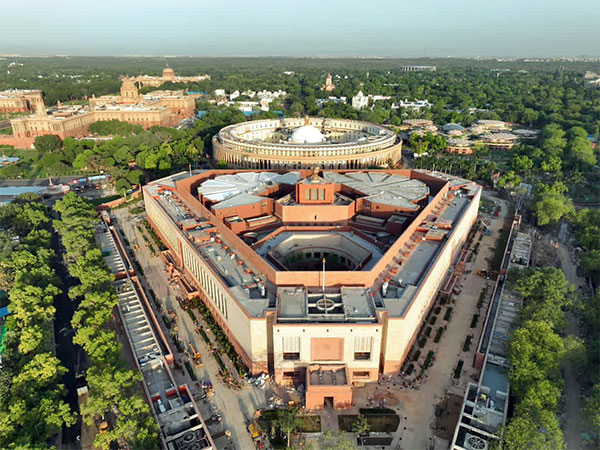Goldman Sachs Predicts Fiscal Discipline in Upcoming Indian Budget
Goldman Sachs anticipates the Indian government will maintain its fiscal deficit target of 5.1% for 2024-25 and announce further consolidation to below 4.5% by 2025-26. The Budget, set to be presented on July 23, is expected to emphasize long-term economic policies and job creation.

- Country:
- India
Goldman Sachs forecasts that the Indian central government will adhere to its declared fiscal deficit target of 5.1% of GDP for the financial year 2024-25. The investment banking firm expects further fiscal consolidation, aiming for a deficit below 4.5% in 2025-26, as detailed in their latest report.
The government's strategy to reduce the fiscal deficit below 4.5% by 2025-26 includes maintaining the revised target of 5.1% for 2024-25. Goldman Sachs notes that even if welfare spending increases, the expected higher dividend transfers from the RBI could mitigate the need to cut capital expenditures.
The fiscal deficit target for 2023-24 was initially set at 5.9% but later revised to 5.8%. With interest expenses for 2023-24 constituting 5.4% of GDP, there is limited fiscal space available for economic stimulus in 2024-25. Goldman Sachs highlights that the primary deficit, which excludes interest payments, stands at 3.5% for the current fiscal year.
Goldman Sachs' report indicates that from FY22, fiscal policy has been restrictive, impacting growth, and this trend is expected to continue into FY25 and FY26 due to ongoing fiscal consolidation. While capital expenditures are anticipated to drive positive growth, welfare spending might act as a counterbalance.
The upcoming budget is expected to address long-term economic policies, with a focus on job creation through labor-intensive manufacturing, credit for MSMEs, enhancement of services exports, and measures to stabilize the domestic food supply chain. Public finance sustainability and green finance will also be pivotal components.
Following the underwhelming results for the ruling BJP in recent national elections, equity investors are anticipating potential relaxation in fiscal consolidation and increased welfare spending. However, Goldman Sachs opines that limited fiscal space and the long-term benefits of recent infrastructure developments may dissuade such shifts.
During the pandemic, the Indian government increased capital expenditure to combat the economic downturn, with capex growth outpacing nominal GDP growth. However, fiscal consolidation constraints have led to declining growth rates in recent years.
The interim budget presented in February was aimed at ensuring financial continuity until the formation of a new government post-Lok Sabha elections. The forthcoming Budget Presentation on July 23 marks Finance Minister Nirmala Sitharaman's sixth budget speech, surpassing former Prime Minister Morarji Desai's record.
The budget session of Parliament will commence on July 22 and conclude on August 12, according to an official announcement made on Saturday.
(With inputs from agencies.)
ALSO READ
SBI Projects Strong Private Sector Capital Expenditure Boost Amidst Fiscal Year
Karnataka Dy CM Urges Focus on Job Creation Over Politics
African Development Bank Approves $5.28M Grant to South Sudan for Job Creation
Fiscal Profligacy in Poll-Bound States Poses Risk to Capital Expenditure, Warns Swiss Brokerage
Rahul Gandhi Criticizes Modi's 'Monopoly Model', Proposes GST Simplification for Job Creation










